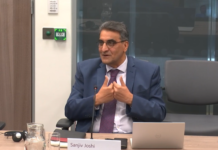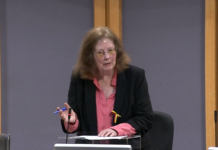- 13% of those in Wales have left a long-term mental health issue untreated over many years in order to avoid prescription drugs
- 32% of those in Wales say that things that used to make them happy no longer do
- 30% of those in Wales want their GP to prescribe an alternative treatment to prescription drugs for their depression
Depression treatment specialists, Smart TMS, unveils exclusive research on Wales’s attitudes towards depression, mental health and its treatments
The conversation around depression and the available treatments is one that is a garnering more and more attention. Serving as a crippling reminder of the UK’s mental health strain, it has been reported that anti-depressant prescriptions have nearly doubled in a decade with 70.9 million being prescribed last year. Furthermore, it is reported that one in five Brits suffer from symptoms of depression, with the OECD reporting that mental illness costs the economy a staggering £94 billion annually.
According to the National Mental Health Development Unit, improved access to psychological therapies can lead to reductions in referrals to the secondary sector and inpatient admissions, fewer GP consultations and counselling sessions, and fewer prescriptions for antidepressant medication, resulting in an estimated 9%-53% reductions in short, medium and long-term costs, especially when implemented at a primary care level.
With the number of adults suffering from mental health conditions and it being such a cost to the UK economy, we need to ask if the current mainstream treatments are working?
Smart TMS, a specialist in mental health treatment for a number of conditions, has conducted exclusive research on a range of themes around these symptoms and the treatment of mental health in Wales.
The exclusive research surveyed over 2000 Brits and found the following in the Wales:
- 13% have left a long-term mental health issue untreated over many years in order to avoid prescription drugs
- 5% would pay over £2,000 to receive an innovative treatment for their mental health issue
- 9% of those who have used antidepressants say that they don’t work
- 14% have taken prescription medication for depression before and the side effects alone (e.g. insomnia, drowsiness) have dissuaded them from using them again
- 32% say that what used to make them happy no longer has the same effect – a key sign of depression
- 40% say they have suffered from undiagnosed depression for many years
- 30% want their GP to prescribe an alternative treatment to prescription drugs for their depression
- 8% had to stop using antidepressants because they found them ineffective or they had negative side effects
- 2% think that prescribed antidepressants have stopped them from doing their job properly or stopped them from working all together
Research published by the National Mental Development Unit shows that mental illness represents the single largest cause of disability. NHS, social and informal care costs £22.5 billion per annum in England (2007 figures). These costs are projected to increase by 45% to £32.6 billion by 2026 (at 2007 prices), mainly due to an increase of £9 billion in treatment and care for people with dementia. To alleviate the costs on the NHS and the wider economy, it is imperative that alternative therapies are introduced to compliment current therapies that provide long term treatment for mental health conditions.
If you would be interested in this research exclusively along with commentary from experts at depression treatment specialists – Smart TMS, please do not hesitate to get in touch. We can also provide the national stats, along with age and gender breakdowns.
Help keep news FREE for our readers
Supporting your local community newspaper/online news outlet is crucial now more than ever. If you believe in independent journalism, then consider making a valuable contribution by making a one-time or monthly donation. We operate in rural areas where providing unbiased news can be challenging. Read More About Supporting The West Wales Chronicle























